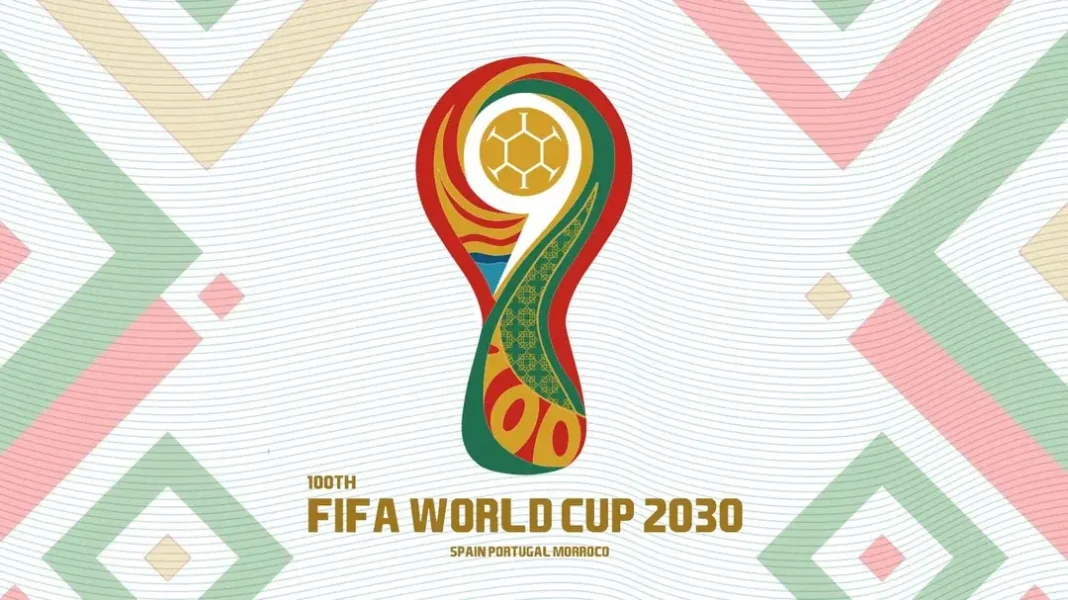With FIFA Eyeing 64-Team Expansion, India’s Dream of Football’s Grand Stage Edges Closer
FIFA is the governing body of World Football. The 2030 FIFA World Cup will be the 24th FIFA World Cup, and marks 100 years since the first World Cup was hosted.
FIFA President Gianni Infantino met on Tuesday in New York with CONMEBOL President Alejandro Domínguez. The leaders of three South American soccer federations discussed the expansion of the men’s 2030 World Cup to 64 teams.
This sets the Grand Stage for India’s golden chance for World Cup qualification.
The opportunity is huge for Indian fans to finally watch their home country on the international grand stage. Indian fans have been through a lot of struggles due to the AIFF corruption. This dream chance can finally justify the tears shed by millions.
¡Creemos en un Mundial 2030 histórico! Gracias Presidente Gianni Infantino por recibirnos y compartir este camino hacia el Centenario de la mayor fiesta del fútbol.
Queremos hacer un llamado a la unidad, a la creatividad y a Creer en Grande. Porque cuando el fútbol se vive entre… pic.twitter.com/XANKxNLf5J
— Alejandro Domínguez (@agdws) September 24, 2025
We believe in a historic 2030 World Cup! Thank you President Gianni Infantino for welcoming us and sharing this road to the Centennial of the best celebration in football.
We want to make a call for unity, creativity and dreaming big. When football is lived by all, the…
— Alejandro Domínguez (@agdws) September 24, 2025
What Does a 64-Team World Cup Mean?
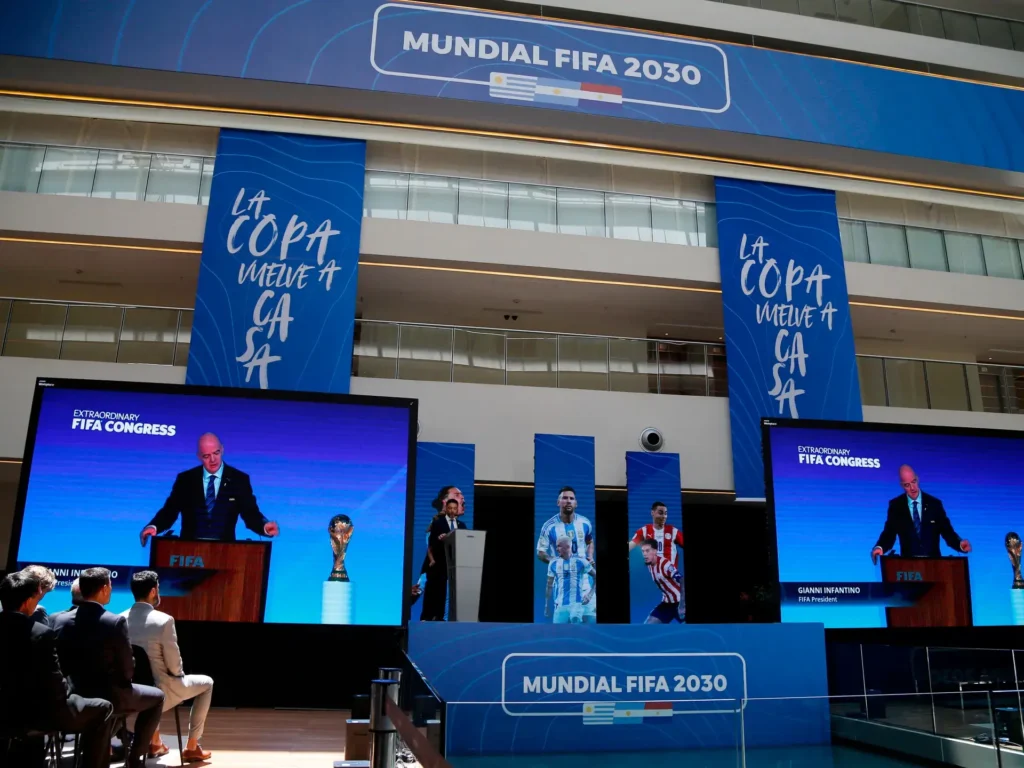
According to the media briefings and reports, the most likely format for a 64-team tournament would feature 16 groups of four teams each. Two teams from each group will advance to the knockout stage of 32 teams.
This would create a total number of 128 matches, which is exactly double that of the current format.
This will lead to the tournament duration increasing from 4 weeks to 8 weeks. This will also lead to season game fixtures ending a few weeks earlier than usual. More stadiums, training facilities, and accommodation would also have to be arranged. Player concerns also remain an issue with the already congested calendar.
Scheduling 128 matches across multiple time zones will bring both complexity and bigger revenue.
The Cultural Connection
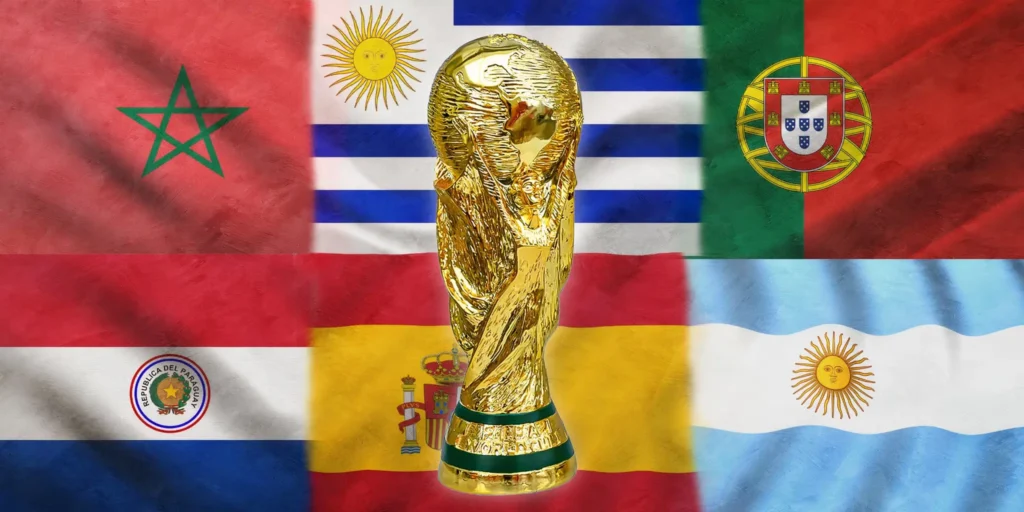
The 2030 World Cup will be hosted in 6 countries, across 3 continents: Spain, Portugal, and Morocco, as primary hosts. The opening matches will take place in Argentina, Paraguay, and Uruguay to celebrate the 100th anniversary of the first World Cup held in Uruguay in 1930.
The 64-team proposal would only amplify the cultural presence among the young generation. The celebration of football will reach significantly more nations by allowing them to participate in this historic milestone.
📷
FIFA Council takes key decisions on FIFA World Cup™ editions in 2030 and 2034: Morocco, Portugal and Spain joint bid is the sole candidate to host FIFA World Cup 2030™
➡️https://t.co/cKJec1tIE4 pic.twitter.com/mwLRerCIlg— FIFA Media (@fifamedia) October 4, 2023
Teams That Could Finally Get Their Chance
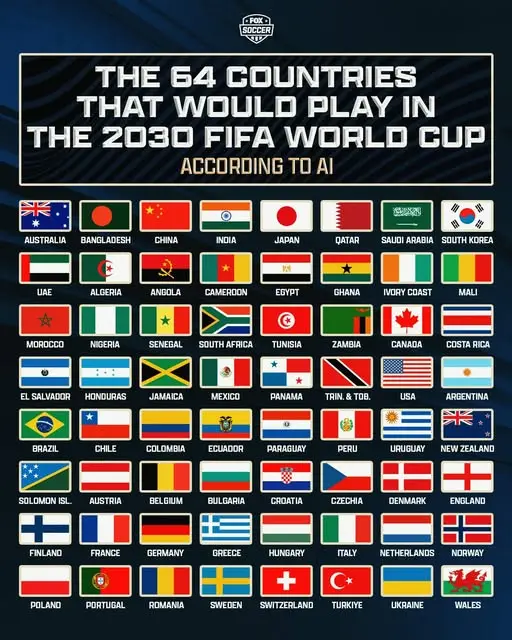 The expansion would benefit a huge number of nations that rarely qualify for World Cups:
The expansion would benefit a huge number of nations that rarely qualify for World Cups:
- African Nations: Countries like Nigeria, South Africa, Ghana, and Algeria. These countries have rich football cultures and histories, but are inconsistent in World Cup appearances.
- Asian Teams: Except for the powerhouses like Japan and South Korea, nations such as Thailand, Malaysia, Vietnam, and India would see their qualifying chances dramatically improve.
- Oceania and the Caribbean: Smaller island nations like Puerto Rico, Cuba, Tuvalu, and many more, which are developing football countries, would gain opportunities to showcase their talent and different styles of gameplay
India’s Golden Chance: Rise of a New Era?
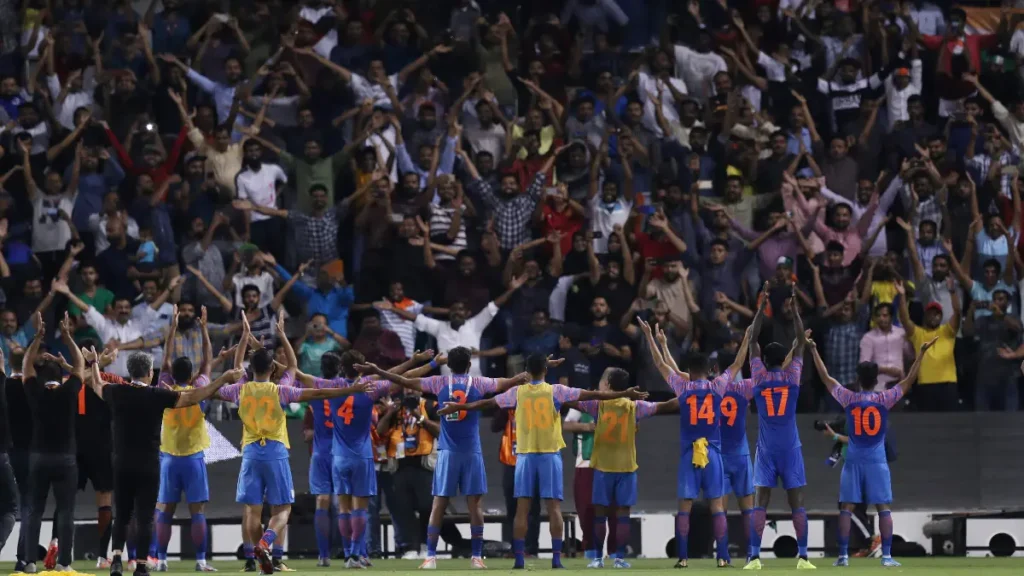
India’s current football situation has both challenges and emerging possibilities. The men’s national team currently sits at 134th in the FIFA rankings as of September 2025. This is their worst position in nine years.
The team failed to qualify for the 2026 World Cup, finishing third in their qualifying group.
India has never participated in any FIFA World Cup, but they were once qualified but denied the opportunity in 1950. Their best-ever FIFA ranking was 94th in February 1996.
Currently, India competes with 45 other Asian nations for just 8-9 World Cup spots. With doubled or more Asian allocations, the probability of qualification would improve a lot.
India has 5 full years to prepare for the World Cup. With proper investments and grassroots developments, India can realistically compete for World Cup qualification in 2030.
Global Impact and Implications
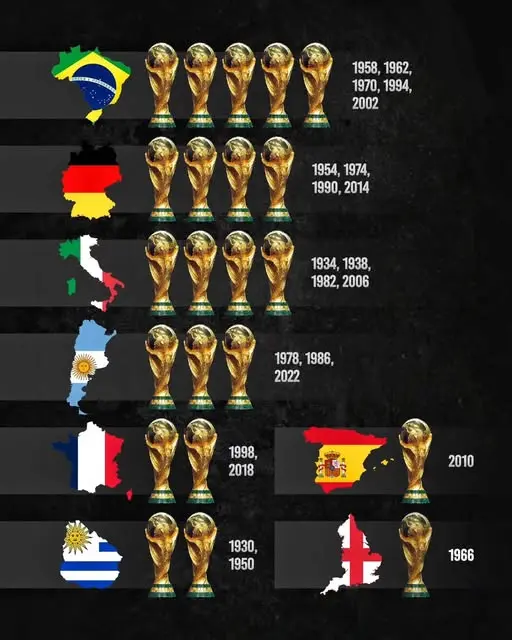
Critics argue that a 64-team tournament could dilute the competition quality and create too many “uncompetitive matches”. UEFA President Aleksander Čeferin called it a “bad idea,” while CONCACAF also expressed reservations.
Though CONMEBOL leaders are very optimistic about the Idea, and their proposal is also backed by FIFA President Mr Gianni Infantino.
The proposal has strong support from developing football nations who see it as their best chance for World Cup participation. African and Asian federations.
European confederations show more resistance. This is probably because they fear the competition being dominated by other continents. As we witnessed in the Club World Cup, the South American teams dominated the competition more than the European teams.
The Path Towards the Future
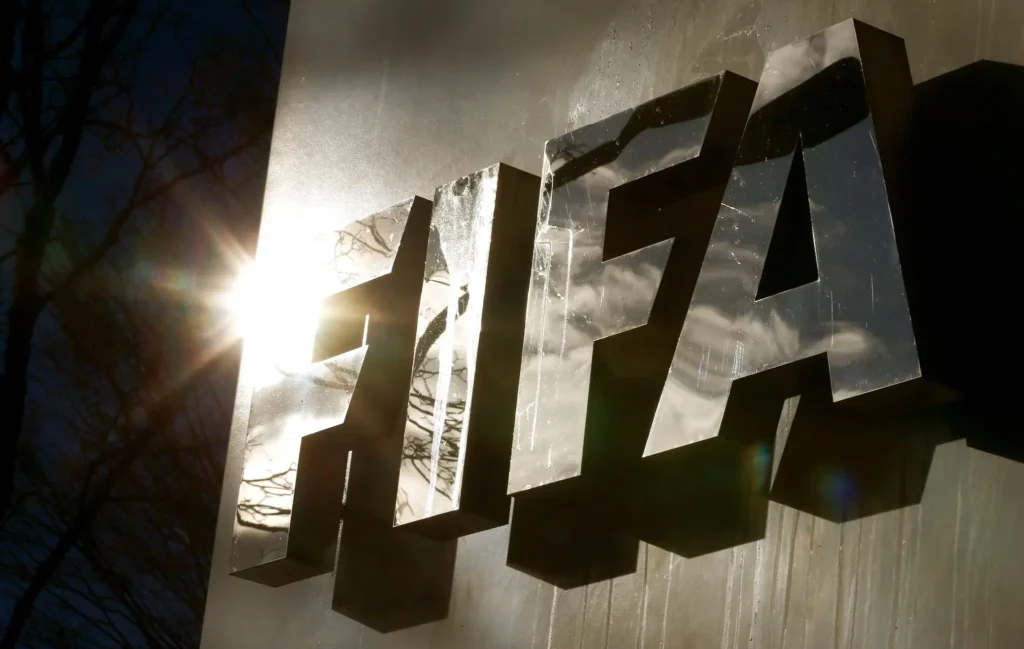
A 64-team World Cup opens the doors for a million revenue opportunities for many people. This makes the sport more global and boosts tourism in multiple countries.
As the finances of hosting a World Cup are not allotted to a single country, the distribution of finances will help each country to maintain its funds without incurring a loss.
While critics worry about competitive dilution, supporters argue that football’s global growth requires providing more nations with realistic aspirations.
Indian football, the potential 64-team format represents a golden chance to finally join the world’s biggest football celebration. The question is not whether India will eventually qualify for the World Cup or not. It is whether the nation will seize this opportunity and make that dream a reality for its millions of fans.
The 2030 World Cup could mark not just the tournament’s huge glory, but also the beginning of truly global football representation. India has 1.5 billion people; that possibility alone makes the 64-team proposal worth supporting.
BREAKING 🚨: The 2030 World Cup is set to be held in six countries across three continents 🗺️
Spain, Portugal and Morocco will host the tournament but the first three games will be in Uruguay, Argentina and Paraguay 🌎 pic.twitter.com/kdKevcZGqq
— Sky Sports News (@SkySportsNews) October 4, 2023

